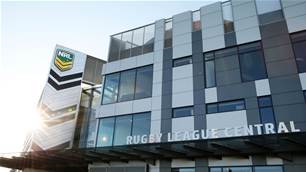Convention regularly gets thrown out the window in Camp Macca strategic meetings; he does what works,
Convention regularly gets thrown out the window in Camp Macca strategic meetings; he does what works, which usually goes against what ceiling-creating numbers and stats suggest. McCormack’s likely kicking off his preparations for London 2012 qualification as you read these words and recently took Inside Sport through how he plans to make his doubters continue to eat their words.
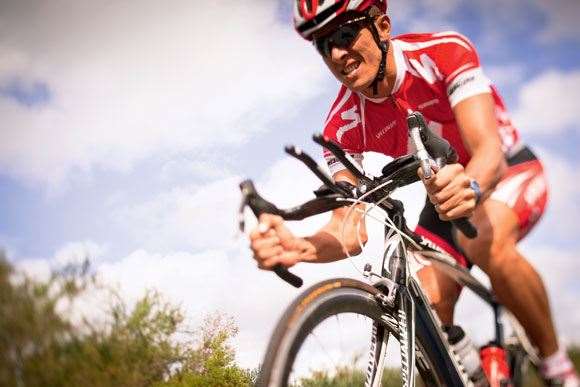 Chris McCormack triathlon Bikes
Chris McCormack triathlon BikesImages: Shelby Hayden Craig
You wish you were a fly on the wall in the sports scientists’ lab when Chris McCormack won his first Ironman triathlon world title in 2007, looking down upon the same boffins who years before told “Macca” that the only thing his test result data added up to was Hawaii Ironman fantasy. To show them the finger with even more vigour, he won it again last year, adding his second victory at Kona to his five Ironman Australia wins and his ITU World Cup victory in ’98., the Sutherland Shire-born and bred 38-year-old is almost willing his detractors on as he turns his attention to an event he thought he’d never revisit – triathlon at the Olympics. Argue that McCormack has no chance of transforming his endurance racing chassis into a high-speed, high-performance model to attack London 2012 and, on most silly, archaic numerical guides, it’s hard to disagree with you. If he’s selected to represent Australia at next year’s giant sports carnival, McCormack will tackle a 1500m swim stage when he’s used to legs in the briny as long as 3.8km in Ironman. His dominant 180km Ironman bike efforts need to be transformed to an almost sprint-distance 40km Olympic stage length, while the London run leg will seem an even greater test of speed, down to 10km from his usual marathon-length (42km) Ironman distance.
Convention regularly gets thrown out the window in Camp Macca strategic meetings; he does what works, which usually goes against what ceiling-creating numbers and stats suggest. McCormack’s likely kicking off his preparations for London 2012 qualification as you read these words and recently took Inside Sport through how he plans to make his doubters continue to eat their words.
WORK ETHIC VS TALENT
“When I was 15-16 everyone was pointing at me going, ‘This kid’s a prodigy.’ But my parents were very, ‘We don’t care about sport. You study, that’s it.’ My Dad in particular: ‘You’re not missing a day of school to do sport.’ We always had these coaches coming to our house and we’d sit down with Mum and Dad and they’d be saying, ‘Your son has talent. Your son is this and these are the numbers ... ’ My Dad would be like, ‘I don’t give a shit, mate. You finish your college, you get a job and you can play sport on the weekend.’ My Dad never understood professional sport. Neither did I to some degree. Because of these labels I’ve had since I was a junior – prodigy, super-talented – people have always said, ‘Of course he’s going to kick on, he’s got this huge engine.’ But that ‘engine’ was in part designed by guys who over the years have been very open to telling me what I can’t do as well. They never put passion into their mathematical equations or data, they never put desire, grit or your work ethic. My parents instilled into me very early, ‘Work hard.’ And so the results came.
“I always wanted to do Ironman. It’s the reason I got into triathlon. I watched it on TV and thought, ‘I want to do that race.’ My brothers laughed at me. I said, ‘I’m going to win that race one day.’ When I told this to the sports scientists, they said, ‘You’ll never win Ironman – you’re too big, you’re too heavy, you can’t carry the fuel, here’s all the numbers. It’s impossible.’ Their exact words to me were, ‘The difference between reality and a dream is that one’s a reality and one’s a dream. And your Ironman aspirations are a dream.’ These are the best sports scientists in Australia telling me I’d never, ever win ... I’ve won more Ironmans than any male ever and I’ve won Kona twice against everything they’ve ever said.
“I won Ironman because I trained my arse off. I’d sit down with my team and treat it like I was the CEO of my own company. We were working out solutions to fixing problems. When we’d bring the sports scientists in, their whole answer was, ‘It can’t be done.’ So a lot of people in the sport have said about me, ‘Macca likes to put people around him who tell him what he wants to hear.’ And I’ve thought, ‘That’s exactly right, because
I want to win.’”
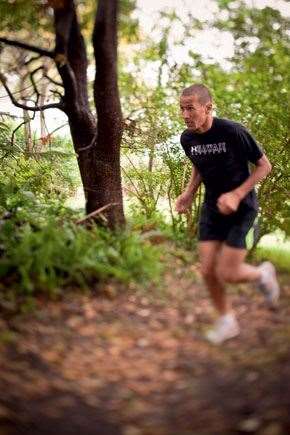 Chris McCormack Triathlon Run
Chris McCormack Triathlon RunImages: Shelby Hayden Craig
COMEBACK TRAIL
“When I was young I used to do this Olympic stuff. Prior to the Sydney Olympics I was world No.1, and the federation [Triathlon Australia] plotted to leave me off the team because they saw me as too inexperienced. Even though I was a world champion, earned Australia its third triathlon spot at the Games, they said, ‘You’re not going.’ At that point in my life I turned my back and said, ‘You know what? I’m moving to America; I’m becoming pro.’ Not that you weren’t pro under federation laws, but you were very much dictated to by the national federation, as are all triathletes who want to race at the Olympics. The federation says you have to
meet the criteria, so they set races and you’re very limited in your sponsorship portfolio. I thought, ‘Up yours, I’m outta here.’
“Missing the Olympics in Sydney was the best thing that happened to me in my career. I was angry, peeved off and I went on and did amazing things. And then the federation called me back for Athens because I was by far the best Australian in the world. They said, ‘Will you trial for Athens?’ I asked, ‘Will you put me in the team?’ They said, ‘No. You’re going to have to qualify.’ So I said, ‘I’m out.’ And never spoke to the federation again. It wasn’t bitterness anymore, I just didn’t need them. I was doing Ironman racing, I was doing my own thing.
“Then after winning the Ironman World Championship last year in Kona, again ‒ I’m 38, which in endurance sports terms is at the older, twilight end ‒ I came home and sort of made peace with the federation and this opportunity presented itself about coming around for London. “They asked, ‘Would you be interested in trialling for London?’ I said, ‘Mate, it’s been ten years since I ... I’m a completely different beast now. I’m slow. These kids are 21, they’re fast.’ They said, ‘There’s an opportunity to go if you want to go.’ I spoke to my wife and thought, ‘You know what? I’ve got nothing to lose. I’m in a different phase. My sponsors are supportive of me, I have more freedom with the federation, I stand on par with them to some degree. I don’t need their money, I don’t need their tracksuits, etc.’
“So we looked at it and they showed me the criteria set out in stone in the sense that they’re looking at the three best Australians in their eyes going and the ‘best’ Australians will be the people who perform the best at three events. I thought, ‘You know what? Nothing to lose and everything to gain. I’m going to have a crack at it.’ “There are no guarantees, though. I’m under no illusions that it’s going to be a walk into the Australian Olympic team. If I make it I’ll be the oldest-ever endurance athlete to compete at an Olympic Games.”
WATER WORLD
“Swimming is where I have to do a lot of catch-up work, coming from Ironman, where the swim is such a small portion of a course; less than an hour of an eight-hour race. The ratio is relatively the same now in Olympic-distance racing, but the intensity and pace of the Olympic-standard swimmers is amazing. The swim leg is so imperative. If you lose 25 seconds, groups can work together to pull away. I’ll be touching around 45-50km a week, just to get my swimming up to where these guys are. To put it in perspective, the competitors leading these triathlon swims would be swimming in the 1500m final at the Australian championships.
“I swim every day. My longest swim will be eight kilometres, my shortest would be six. I swim with a great squad at the Caringbah Leisure Centre. I put myself in the hands of Roz Moller, the coach there. She knows my objective; we’ve sat down and worked out where I need to be. She’s a swimming coach in the sense that she coaches swimmers. I need to learn to dive, because triathlons are dive-starts off a pontoon. It’s natural to lose your speed as you age. Mine will be a lot of speed-intensive work, just to get that turnover back on again and get this body able to produce lactate, which has been very, very painful.”
BIKE BANDIT
“The regular ITU guys’ run is superior, their swim is superior, but my strength against them is that I have a lot more bike power.“For the Olympic-distance stuff, I won’t have to do the volumes of training I was doing for Ironman preparation, where I’d ride about 1000km a week. Of that, 90 per cent was done at a relatively steady effort and pace. Now, I’ll only be doing about 400 kilometres a week; less than half. But 90 per cent of that is going to be at a high intensity; relatively fast, attention to the detail. I’m no longer a diesel engine, it’s time to be a high-performance engine, if you like. It will lean me up a lot more and get my muscle patterns firing a lot quicker, which is one of the things you lose when you age.
“My longest bike session will be five hours, my shortest will be an hour. It differs every single day. As I’ve gotten older my training patterns have definitely evolved; I’m no longer locked into anything. You have to be a little bit more adaptive when you’re in your mid-30s. I was with Lance Armstrong in Austin, Texas this year and we were talking about how we’ve been successful in our mid-30s and agreed it was definitely down to this flexibility in our programs. “Youth allows you to make mistakes. As you get older you don’t have that luxury. Instead of a seven-day training cycle, I’ll have a ten-day training cycle. I seem to be very attentive to recovery and attentive to the little things I was a bit lax with in my early 20s.”
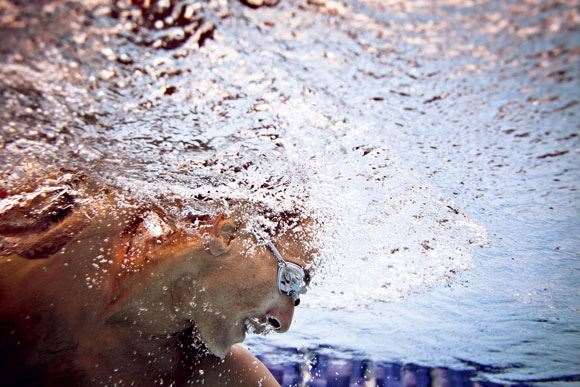 Chris McCormack Triathlon Swim
Chris McCormack Triathlon SwimImages: Shelby Hayden Craig
ON THE RUN
“I ran more as an Ironman athlete than I will be for Olympic qualifying; I was running about 120km a week, now I’ll run about 80-90km, but the intensity will be a lot higher. I have to be very delicate with my transition across because Ironman running was all about being able to run 3.45mins per kay for 42km off the bike, which isn’t that quick. Now I’ll have to run sub-3mins per kay. My muscles just aren’t used to doing that. If you ever have an injury in triathlon, it tends to always be running-orientated, especially as you age; if I pull up lame or get injured, it’s game over.
“All my interval training is on soft trails near my house near Cronulla or at a nearby national park; I’ll sit for five minutes at a certain tempo. My longest running session would be two hours and my shortest run an hour. A 90min session is made up of a 20min warm-up, a 15min warmdown and some intervals in the middle and variations of those. Some longer intervals at a slower tempo and some shorter intervals, but never around a track. I will get to a track, but at the moment I’m just getting the muscles flying fast again. If I go to the track I find that the tendency to pull a muscle is very high when I haven’t been running flat-out for so long.”
YOGA FOR BLOKES
“I’ve adopted yoga; I do something three days a week called Sportyoga when I’m home in Australia. I call it yoga for blokes; I go into a regular yoga class and really struggle holding the praying mantis position, for example. Sportyoga is about running through a series of poses, but much quicker. It’s more like a dance. I’ve found it’s a good way of getting reconnected and being completely body-aware. It’s about being able to turn
muscles on and off. You lose that ability if you don’t focus on it. You go through a yoga routine three times in a Sportyoga session. It’s very demanding; you sweat a lot, as opposed to yoga where you have to hold a pose for ten minutes while you start to shake off-balance.”
LEFT-RIGHT-UPPER
“Meridian boxing is concerned with the right side of your brain controlling the left side of your body and vise-versa. Blokes like Andre Agassi and Lance helped bring it to prominence. Everything I do with the right
side of my body I make sure I can replicate on my left. I’ve noticed, especially in boxing, that if I’ve been given a right-right-left-upper cut-hook sequence, I get a rhythm going. If I reverse it, it’s the same movement, but
as humans we wonder why it’s so difficult to do ...
“I’ve found that when I’ve been my most fittest, my Meridians are phenomenal; whereas when I’m only 80 per cent fit, I really have to concentrate during those Meridian boxing sessions. “I’ve often asked sceptic sports scientists to explain the relationship behind my sharp left-right coordination and high fitness and they’ve always offered the placebo concept as an answer. I remain convinced, though, that my Meridian work is an asset to my overall balance and performance.”
OLYMPIC LAYOUT
“I’ve heard people describe the triathlon course for the 2012 London Olympics as ‘easy’, being in Hyde Park and across flat ground, but I think of London as rarely sunny. If you bring the rain, it’s not an easy course; tight turns can get slippery. That three-feet-deep pond will be an aggressive swim as well. But I’m relatively big compared to these smaller, younger guys, so maybe I’ll be able to throw my weight around a bit ... ”
‒ James Smith
Related Articles
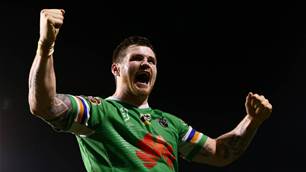
Chuffin' hell, here come more Poms!
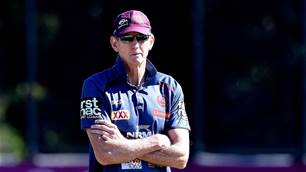
Souths in shock Bennett swoop
